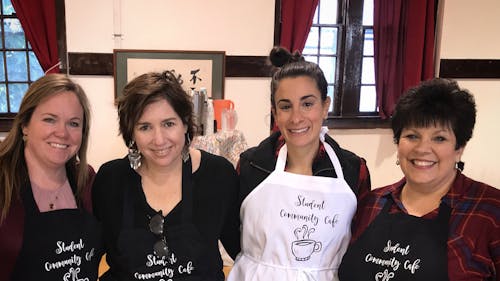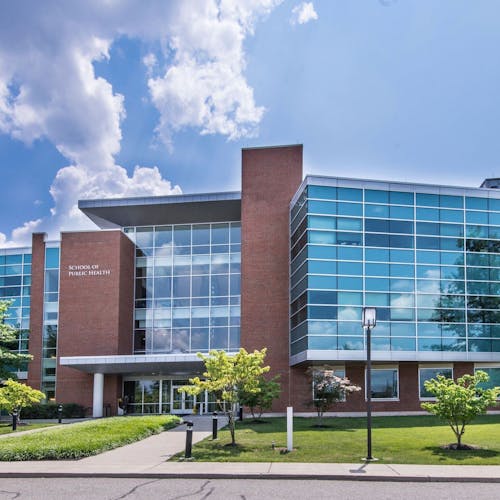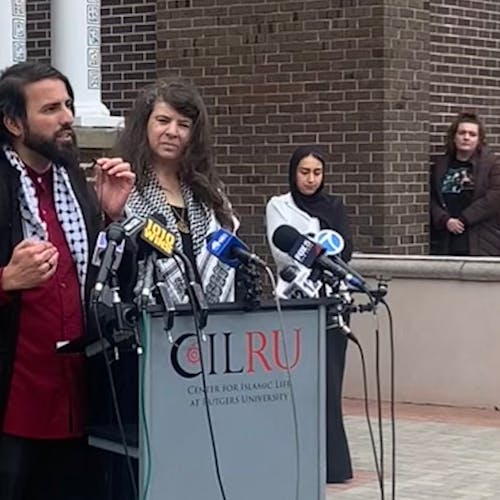Rutgers groups help local church test new program for food insecure students

The College Avenue Community Church served lunch to food-insecure students from Nov. 4 to Nov. 15 as part of the Community Cafe initiative. The two-week pilot program was sponsored by Rutgers Student Affairs, Rutgers Student Food Pantry, Rutgers Cooperative Extension and Rutgers Against Hunger.
Reverend Douglas Shepler of the College Avenue Community Church expressed an interest in serving hot meals to food-insecure students, said Kerri Willson, director of Off-Campus Living and Community Partnerships. Shepler and Rutgers health psychologist and assistant extension specialist Dr. Cara L. Cuite said the church could use unused food from dining halls.
The dining hall usually has unused trays of food that are untouched, packaged and frozen, Willson said. These foods are considered recoverable and are eligible for donation.
“The dining hall has a program with the College Avenue Community Church ... where they can take those items and donate them, so they can be reheated and served,” she said. “If there are trays that have already been touched or half a tray remains or something like that, then that food gets composted and is used on the farms to be served to the animals, but that food cannot be reheated and served.”
Recovered food from the dining hall was not the only way the church was able to obtain food for the program, Willson said. Some foods were purchased and some were donated to the church by organizations such as the Community FoodBank of New Jersey and Middlesex County Food Organization and Outreach Distribution Services. The church was also able to acquire donations from local restaurants, such as LongHorn Steakhouse and Panera Bread.
Due to the different vendors and contributors, the church was able to run a program that offered a variety of foods to students in need. Some of the foods served included pancakes, sausages, scrambled eggs, pre-packaged peanut butter and jelly sandwiches, salad, pulled pork and fried chicken, Willson said.
She said on the first day of the program approximately 25 students showed up, but by the third day approximately 80 students showed up. She also said the number of students visiting during the second week was consistent.
“It has the potential to grow to 100 people a day,'' said Willson.
The goal behind holding a pilot program is for the church to determine whether it will be able to continue this initiative to serve food insecure students largely on its own as a long-term project. She and her colleagues will continue to promote the Community Cafe and continue to recruit student volunteers if the program is continued, Willson said.



